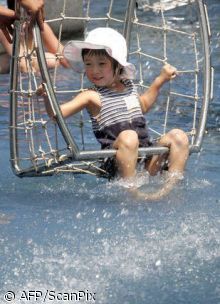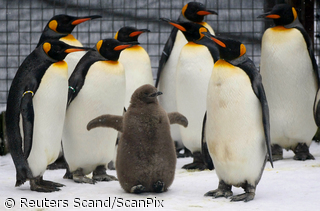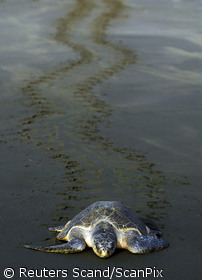Fewer workers to support greater number of retirees
Published:
30 March 2003 y., Sunday
When Secretary of Defense Donald H. Rumsfeld recently disparaged France and Germany as "Old Europe," maybe he was speaking demographically.
According to a new study of the European Union's 15 member nations, governments there are facing an age problem that is almost certain to get worse. European families are having fewer children, and are exacerbating the problem by delaying child-bearing.
As a result, the research team said, Europeans face higher health and welfare costs, fewer wage-earners, and an impact on national productivity. In other words, a downward spiral has begun, and soon fewer young workers will be supporting more and more old retirees.
Although their calculations predict a slight population rise over the next 15 years - the result of a "baby boom" in the 1960s - the researchers see Europe having 88 million fewer people when the year 2100 rolls around, down from about 230 million.
One of the researchers, Brian O'Neill at Brown University in Providence, R.I., said the data show "there are fewer children today than there are parents" in the European Union. "So we know the number of parents one generation in the future is going to be even smaller.
"Then there is the additional factor of delay," which accounts for about 40 percent of the expected decline, he said.
Europe has about four working-age persons for every elderly person, the researchers said. But they predict that there "will be considerably less than three" workers per retiree for most of this century, even if young families begin having children sooner.
Šaltinis:
The Sun
Copying, publishing, announcing any information from the News.lt portal without written permission of News.lt editorial office is prohibited.
The most popular articles
 Hundreds of New Yorkers enjoy a dip in rubbish dumpsters that have been converted into swimming pools as part of the city's summer initiative.
more »
Hundreds of New Yorkers enjoy a dip in rubbish dumpsters that have been converted into swimming pools as part of the city's summer initiative.
more »
 On 19 July, a school, which had been reconstructed with the funding from Lithuania’s Special Mission in Afghanistan, was opened in the village of Suri, the Zabul Province in the South of Afghanistan.
more »
On 19 July, a school, which had been reconstructed with the funding from Lithuania’s Special Mission in Afghanistan, was opened in the village of Suri, the Zabul Province in the South of Afghanistan.
more »
 Self-employed workers and their partners will enjoy better social protection – including the right to maternity leave for the first time – under new EU legislation that enters into force today.
more »
Self-employed workers and their partners will enjoy better social protection – including the right to maternity leave for the first time – under new EU legislation that enters into force today.
more »
 A 45 U.S. dollar garage sale purchase turns out to be long lost Ansel Adams negatives worth 200 million dollars.
more »
A 45 U.S. dollar garage sale purchase turns out to be long lost Ansel Adams negatives worth 200 million dollars.
more »
 A Turkish toddler survives a three-floor fall from a balcony when he lands on a stack of plastic pipes.
more »
A Turkish toddler survives a three-floor fall from a balcony when he lands on a stack of plastic pipes.
more »
 Around 200 Magellan penguins, most of them dead, wash up on Uruguay's beaches.
more »
Around 200 Magellan penguins, most of them dead, wash up on Uruguay's beaches.
more »
 Europeans are calling on Member States to boost their efforts to improve road safety, according to a survey published by the European Commission today.
more »
Europeans are calling on Member States to boost their efforts to improve road safety, according to a survey published by the European Commission today.
more »
 With an increase in life expectancy in China has come an accompanying rise in dementia cases, which may leave the younger generation struggling to cope with treatment and care.
more »
With an increase in life expectancy in China has come an accompanying rise in dementia cases, which may leave the younger generation struggling to cope with treatment and care.
more »
 These baby sea turtles should be swimming in the Gulf of Mexico, but instead they are recovering at the Institute for Marine Mammal Studies in Mississippi.
more »
These baby sea turtles should be swimming in the Gulf of Mexico, but instead they are recovering at the Institute for Marine Mammal Studies in Mississippi.
more »
 Reviving the Latin American tradition of the afternoon siesta, a hotel in Argentina brings siesta to the corporate workforce.
more »
Reviving the Latin American tradition of the afternoon siesta, a hotel in Argentina brings siesta to the corporate workforce.
more »